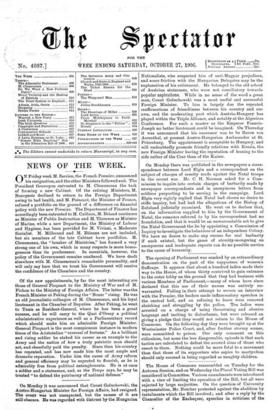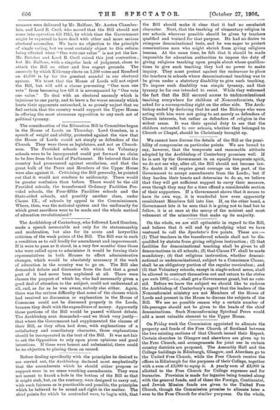The House of Commons reassembled on Tuesday for the Autumn
Session, and on Wednesday the Plural Voting Bill was considered in Committee. Various amendments were introduced with a view of limiting the operation of the Bill, but all were rejected by large majorities. On the question of University representation, Mr. Butcher protested against the abolition by instalments which the Bill involved; and after a reply by the Chancellor of the Exchequer, speeches in criticism of the measure were delivered by Mr. Balfour, Mr. Austen Chamber- lain, and Lord R. Cecil, who moved that the Bill should not come into operation till 1915, by which time the Government might be expected to have dealt -with other and more serious electoral anomalies. We have no objection to the principle of single voting, but we most certainly object to this reform being effected when " One 'vote one value " is not-yet the law. Mr. Butcher and Lord R. Cecil raised this just contention ; but Mr. Balfour, with a singular lack of judgment, chose to attack the Bill on other and less cogent grounds. The anomaly by which Kilkenny elects on 1,500 votes and Romford on 45,000 is by far the greatest scandal in our electoral system. We trust that the House of Lords will not reject the Bill, but will add a clause preventing " One man one vote " from becoming law till it is accompanied by " One vote one value." To deal with an electoral anomaly which is injurious to one party, and to leave a far worse anomaly which hurts their opponents untouched, is so grossly unjust that we feel certain that the country would support the Upper House in offering the most strenuous opposition to any such act of political tyranny.















































